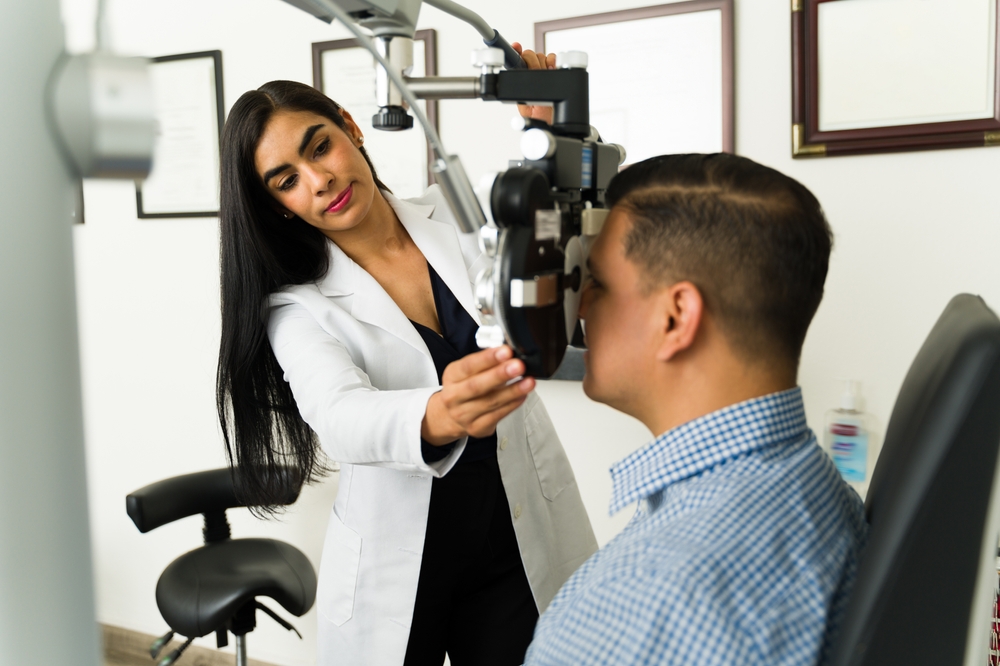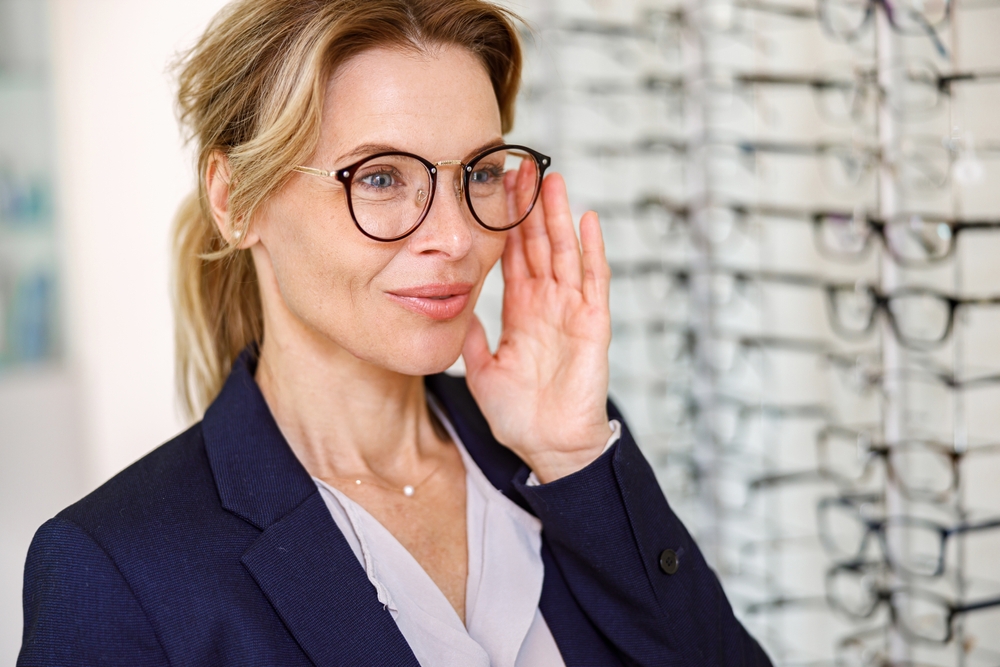Frequent eye exams are vital for maintaining optimal eye health. They enable your eye doctor to detect vision problems early before they cause long-term damage.
They also help you take proactive measures to protect your sight. Asking the right questions during your eye exam can ensure you get the most out of your visit.
Keep reading to learn more about 5 questions to ask at your next eye exam!
What to Expect at Your Next Eye Exam

When you have an eye exam at Jacksonville Eye Center, your eye doctor will conduct various tests to assess your vision and eye health. Generally, a comprehensive eye exam may include:
- A visual acuity test to determine how well you can see from a specific distance
- A color vision test to measure your ability to tell colors apart
- A visual field test to evaluate your peripheral vision
- A dilated eye exam to check the structures inside your eye
- A tonometry test to measure the pressure inside your eyes and screen for glaucoma
- An eye muscle test to ensure your eyes are coordinated
The individual tests administered by your eye doctor will depend on your age, eye health history, and risk factors for eye conditions. You’ll also have time to ask questions about your eye health and vision.
To ensure they are the best they can be, you can ask questions like:
1. Has My Prescription Changed Since My Last Eye Exam?

Frequent eye exams help keep track of any vision changes. A change in your prescription can affect everything, including work, driving, reading, and enjoying your favorite activities.
Even minor changes can lead to decreased visual acuity, headaches, and eyestrain. By knowing your current prescription, you can make informed decisions about glasses or contact lenses and ensure you continue to enjoy clear, comfortable vision.
This is also a great time to ask your eye doctor about vision correction procedures like LASIK, PRK, and RLE to permanently improve your eyesight.
2. Are There Symptoms I Should Watch For?
Routine eye examinations are crucial for promptly detecting and treating eye conditions. Ask your eye doctor what symptoms to watch for so it will be easy to notice changes that could otherwise go undetected.
These may include:
- Eye pain
- Decreased night vision
- Loss of peripheral vision
- Swelling around the eyelids
- An abrupt increase in floaters
- Increased sensitivity to glare and bright light
This information lets you know when to see your eye doctor outside your regular visits and when to seek immediate care. The sooner eye conditions are detected, the better the chances of successful treatment and preserving your sight.
3. Am I at Risk of Developing Any Eye Conditions?
By asking this question, you can better understand your specific risk factors, allowing you to take additional steps to lower your risk of eye conditions. As part of your eye exam, your eye doctor will review your family history, health history, and general lifestyle.
Many eye conditions can be influenced by age, health, and genetics. For instance, the following can increase your risk of certain eye conditions like glaucoma, age-related macular degeneration, cataracts, and diabetic retinopathy:
- Having diabetes
- A family history of eye conditions
- Being 65 or older
- Having high blood pressure
- Smoking
4. What Lifestyle Changes Can I Make to Help Improve My Eye Health?
Various lifestyle changes can boost your eye health. Your eye doctor can provide personalized recommendations that suit your specific needs.
These may include lifestyle changes that you easily incorporate into your everyday routine, such as:
Investing in High-Quality Sunglasses

It’s important to wear sunglasses that block 99 to 100 percent of UVA and UVB rays whenever you go outside. UVA and UVB rays can cause damage to your lens, cornea, and retina.
They can contribute to eye conditions such as pterygia or growths on the eye, cataracts, and age-related macular degeneration.
Exercising Frequently
Working out for 30 minutes a day can help ward off diabetes, which can cause diabetic retinopathy, an eye condition that can lead to vision loss.
Quitting Smoking
If you smoke, you’re at an increased risk for dry eye, uveitis, cataracts, and glaucoma. Not smoking can decrease your risk of developing these eye conditions.
Eating for Your Eyes
Include omega-3, antioxidant, and vitamin-rich foods in your diet like:
Fish
Sardines, salmon, and tuna are packed with omega-3 fatty acids, which can help prevent macular degeneration.
Leafy Greens

Collard greens, kale, and spinach are excellent sources of antioxidants and vitamins A, C, and E that can lower your risk of cataracts and macular degeneration.
Citrus Fruits
Grapes, oranges, and lemons are rich in vitamin C, which can help protect against ultraviolet (UV) light damage and reduce your risk of cataracts.
Adopting these simple habits can contribute to optimal vision and eye health.
5. How Often Should I Have Eye Exams?
Regular eye exams are your best defense against vision-threatening conditions. Even if you’re not experiencing symptoms, preventative care can help your eye doctor detect any issues before they worsen and permanently damage your vision.
That’s why it’s vital to discuss with your eye doctor how often you need to get your eyes checked. The frequency of your eye exams will depend on your age, risk factors for eye conditions, and overall health.
The general guidelines from the American Academy of Ophthalmology are as follows:
- Have your eyes examined once in your 20s and twice in your 30s
- Undergo a complete eye exam in your 40s
- Get eye exams every year or two if you’re 65 or older
There are exceptions:
- If you wear contacts, visit your eye doctor annually
- If you notice vision changes, contact your eye doctor as soon as possible
- If you have a family history of eye disease, high blood pressure, or diabetes, you’ll likely need to see your eye doctor more often
Your ophthalmologist can tell you how frequently you should come in for eye exams based on your individual circumstances. It’s essential to follow the schedule your eye doctor provides to ensure any issues are detected and treated as soon as possible.
Do you remember when you had your last eye exam? Schedule an appointment at Jacksonville Eye Center in Jacksonville, FL, today to be proactive about your vision and eye health.

